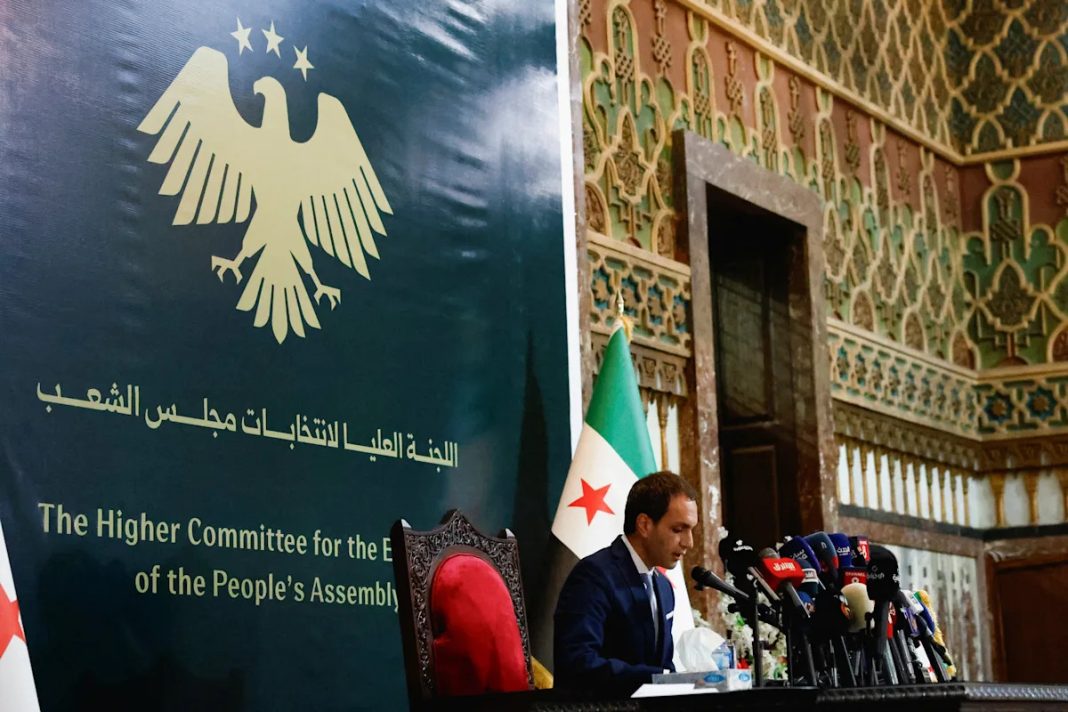Syria has published the results of its first parliamentary election since the government of former President Bashar al-Assad was toppled, revealing that most new members of the revamped People’s Assembly are Sunni and male.
Electoral commission spokesperson Nawar Najmeh told a press conference on Monday that only four percent of the 119 members selected in the indirect vote were women and only two Christians were among the winners, sparking concerns about inclusivity and fairness.
The election represents a landmark moment in the country’s fragile transition after nearly 14 years of war, but critics say it favours well-connected figures and is likely to keep power concentrated in the hands of Syria’s new rulers, rather than paving the way for genuine democratic change.
News agency AFP cited Najmeh as saying that the number of women in the parliament was “not proportionate to the status of women in Syrian society and their role in political, economic and social life”.
He called the representation of Christians “weak, considering the proportion of Christians in Syria”.
The authorities resorted to an indirect voting system rather than universal suffrage, alluding to a lack of reliable population data following the war, which killed hundreds of thousands of Syrians and displaced millions.
Sunday’s vote saw around 6,000 members of regional electoral colleges choose candidates from preapproved lists, part of a process to produce nearly two-thirds of the new 210-seat body. President Ahmed al-Sharaa will later select the remaining third.
Citing security and political reasons, authorities postponed the vote in areas outside government control, including Kurdish-held parts of Syria’s north and northeast, as well as the province of Suwayda, held by the Druze minority. Those suspensions left 21 seats empty.
Najmeh was cited by news agency AFP as saying the state was “serious” about having “supplementary ballots” to fill the assembly’s seats.
Reporting from Damascus, Al Jazeera’s Osama Bin Javaid said: “If you ask the Druze in the south or the Kurds in the north, they say [the elections] were not representative.
“If you ask people in major cities, like Aleppo, Damascus, Hama, and other parts of the country, they’re hopeful that this is the first taste of a real election.”
On March 10, Syria’s Kurds and Damascus agreed to integrate Kurdish-administered civil and military institutions in the country’s northeast into the state by the year’s end, but negotiations on implementing the deal have stalled.
Delays in implementing the March 10 agreement meant there were no timetables as yet for ballots in Raqqa and Hasakeh, according to Najmeh.
Najmeh said that the president’s choice would perhaps “compensate” for some underrepresented components of Syrian society, but he rejected the idea of a quota-based system.
Political and rights activist Nour al-Jandali, who was selected for a seat in central Syria’s city of Homs, was quoted by AFP as saying the new lawmakers “have a great responsibility”.
She noted challenges the new legislature faces, including “how we re-establish a state built on freedom, citizenship and justice”, adding that “women must have a real and active role” in drafting public policy.

